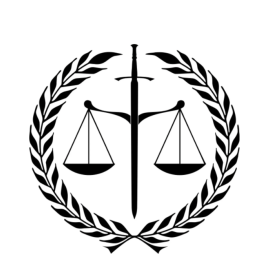Introduction
The BBC, as a licence-fee funded broadcaster, is an important organisation to which millions around the world tune for factual, informative, and objective news coverage. 68% of people say that they turn to the BBC for the news, while BBC News reaches 75% of the UK population on an average week. Additionally, the BBC is one of the largest news websites in the world, with its website getting 1.2 billion visits, compared to the CNN website, which gets 710 million visits.
However, as has been reported over the last year, there have been pitfalls in BBC coverage when it concerns Israel, Palestine and especially Gaza, as well as the wider MENA region. For years, Israel has devoted considerable resources in determining the narrative. There has been extensive evidence of targeting of the BBC in the UK as the main media outlet regarding this domination.
When missing key pieces of context, prioritising one voice over another, allowing unverified claims to go unchecked, and letting issues of transparency/lobbying blur certain lines, journalism falls short of its essential role and by extension democracy is put at risk.
The BBC has interviewed Israeli and Palestinian officials, conducted reports on settlement expansion in the West Bank and provided coverage after coverage on the onslaught in Gaza. However, on the overall coverage of Israel-Palestine, the BBC has been accused of falling short, such as not providing the full context, rarely independently verifying claims made by Israeli officials, and treating Palestinian spokespeople in a less preferential manner than they might other speakers.
This risks dehumanising Palestinians and normalising the unlawful situation that they are subject to due to the practices of the Israeli government. In turn, this manufactures consent for the Israeli government to continue its bombardments and illegal treatment towards Palestinians.
Additionally, the efforts of the Israeli lobby towards the BBC have been widely documented, with huge ramifications. Here are a series of examples:
- In 2021, the BBC removed a series of Bitesize education videos on Palestine and the context to the occupation, following pressure and complaints from UK Lawyers for Israel – a lobbyist organisation, who argued that the videos were “unbalanced and partisan” and “encouraging illegal conduct in schools”.
- In 2003/4, the BBC pulled top correspondent Orla Guerin from the Middle East following complaints from the Israeli government on her reporting and her stating in an interview in 2003 that “I can’t imagine any other government thinking like that... How can you still be a democracy and try to harass the press? This is not how a democracy behaves”. In 2004, the Israeli government complained to the BBC where they accused Guerin of a ‘deep seated bias against Israel... verging on anti-Semitism'. Not long after, then Director General Mark Thomson returned from a visit to Israel (2005) and where he had met with then Prime Minister Ariel Sharon, the announcement was made that Guerin was being pulled from the Middle East.
- In 2009, the BBC, as well as Sky News, refused to screen the DEC appeal for Gaza, responding to Israeli lobby groups.
- In 2025, the BBC took down from its streaming services a documentary that looks at the war in Gaza through the eyes of children, titled “Gaza: How to Survive a Warzone”, again following external pressure.
We will regularly update the Caabu website and socials as our analysis continues and evolves. Here are our initial findings and points to particularly hone, given the gravity of the relevant contexts.


